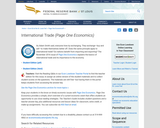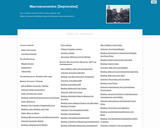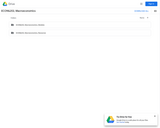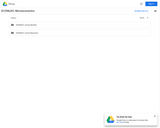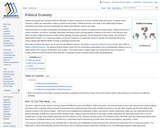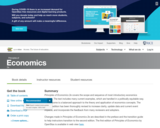Short Description:
A Practicum in Behavioral Economics is a practice-based textbook covering the broad field of behavioral economics. Because behavioral economics is foremost a “test-and-learn” field of scientific inquiry that evolves according to experimental outcomes, so too should students test-and-learn. As such, the book’s primary goal is to help students experience behavioral economics through participation in the same experiments and games that serve as the foundations for, and shape the contours of, the field. With the help of this book students learn behavioral economics firsthand, and in the process create their own experiences. They learn about themselves – about how they make private and public choices under experimental conditions – at the same time as they learn about the field of behavioral economics itself.
Long Description:
The approach of this book is premised on a simple assumption: because behavioral economics is foremost a “test-and-learn” field of scientific inquiry that evolves according to experimental outcomes – and practical, policy-orientated applications of the knowledge garnered from these outcomes – so too should students test-and-learn the field itself. Studying and practicing behavioral economics should occur simultaneously, which in turn requires a practicum more than it does a traditionally styled textbook.
A Practicum in Behavioral Economics takes a new approach to the style of academic textbooks. Based upon the author’s personal teaching experiences over the past 25+ years, and feedback from peers and students, it is clear that traditional theory-based textbooks in behavioral economics insufficiently stimulate the student, and thereby fail to connect the student viscerally and meaningfully to what has become an enticing canon of economic thought, inquiry, and practice. Because it is a practice-based text, A Practicum in Behavioral Economics promotes active learning and engagement with the realities of behavioral economics in the moment, and encourages students to think like behavioral economists rather than just passively learn about the body of theoretical, experimental, and empirical work economists have produced. The student’s imagination is sparked, which in turn sparks group discussion and discernment.
The book consists of four sections that, taken together, portray in full the eclectic methodologies comprising the field of behavioral economics. Sections 1 and 2 present the thought and laboratory experiments that have formed a key pillar of the field. The thought experiments are, for the most part, re-castings of the simple cognitive tests devised by psychologists and economists over the past three-to-four decades to illustrate the fallacies, miscalculations, and biases that distinguish homo sapiens from homo economicus; experiments compiled in Daniel Kahneman’s 2011 bestseller Thinking, Fast and Slow. Similarly, the laboratory experiments are, for the most part, re-castings of the seminal experiments conducted by Kahneman and Tversky (among others) that help motivate the revised theories of human choice behavior, such as Tversky and Kahneman’s (1979) Prospect Theory, that form another pillar of behavioral economics. Alongside these experiments, Section 2 presents the revised theories of choice behavior with varying degrees of rigor.
Section 3 submerses the student in the world of behavioral game theory. Here, we follow the lead of Colin F. Camerer’s 2003 graduate-level textbook Behavioral Game Theory: Experiments in Strategic Interaction and William Spaniel’s 2011 Game Theory 101: The Complete Textbook, first by characterizing the games analytically, i.e., identifying solution, or equilibrium, concepts that are predicted to result when members of homo economicus play the games, and then by discussing empirical results obtained from corresponding field experiments conducted with homo sapiens. It is within the context of these experiments that theories of social interaction are tested concerning inter alia trust and trustworthiness, honesty, fairness, reciprocity, and more. As with the thought and laboratory experiments presented in Sections 1 and 2, the classic games of iterative dominance and simultaneous moves presented in Section 3 are meant to be replicated with students as subjects and the instructor as experimenter, or researcher.
Finally, Section 4 wades into the vast sea of empirical research and choice architecture. Here students explore studies reporting on (1) the outcomes of actual policy nudges, some of which are featured in Richard H. Thaler and Cass Sunstein’s 2008 bestseller Nudge, (2) published studies based on analyses of secondary datasets that test for choice behavior consistent with the new theories of behavioral economics, and (3) published studies based on analyses of primary datasets obtained from novel field experiments to further test the revised theories. The main purpose of this section is not only to introduce the student to interesting empirical studies in behavioral economics, but also, in the process, to incubate in the student an abiding appreciation for the obscure settings that sometimes lend themselves to such study.
In the end, the content of A Practicum in Behavioral Economics is based upon sound pedagogical and scientific foundations that aim to support students in learning quickly and efficiently. The book promotes a practice-based approach, which is naturally consistent with the trial-and-error of everyday life. As a result, the approach goes beyond understanding and knowing. It requires using, applying, and acting. The method requires practice. It is this approach that is the most effective in teaching the many facets of behavioral economics to students.
Word Count: 145583
(Note: This resource's metadata has been created automatically by reformatting and/or combining the information that the author initially provided as part of a bulk import process.)
